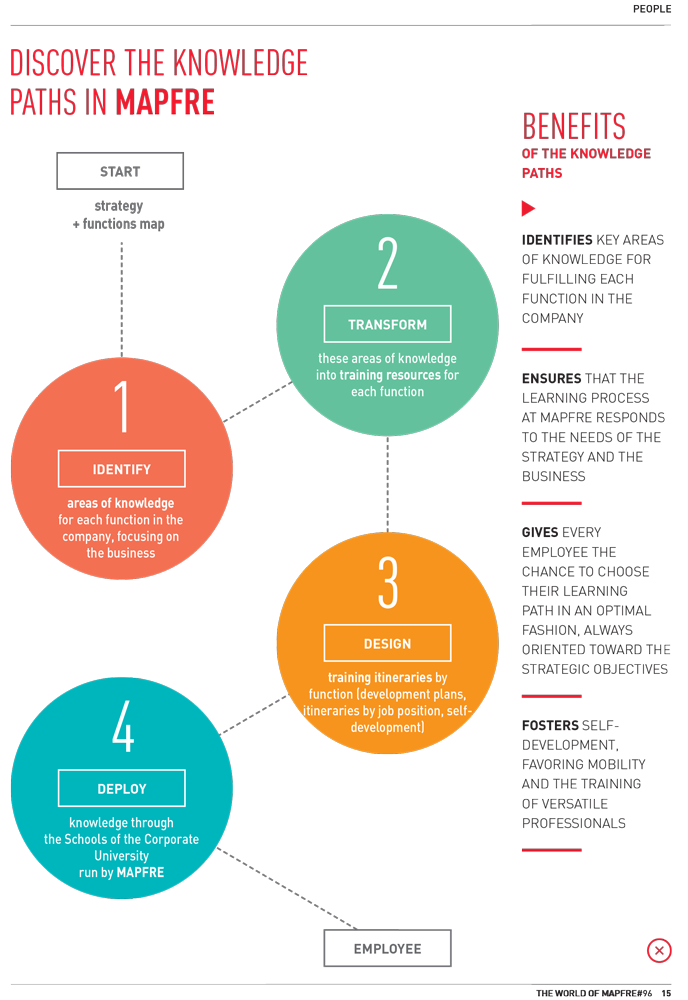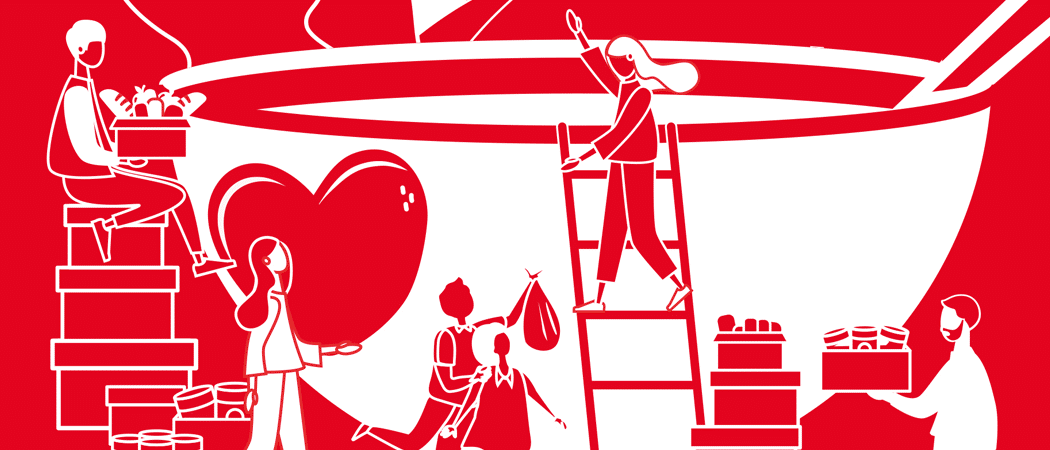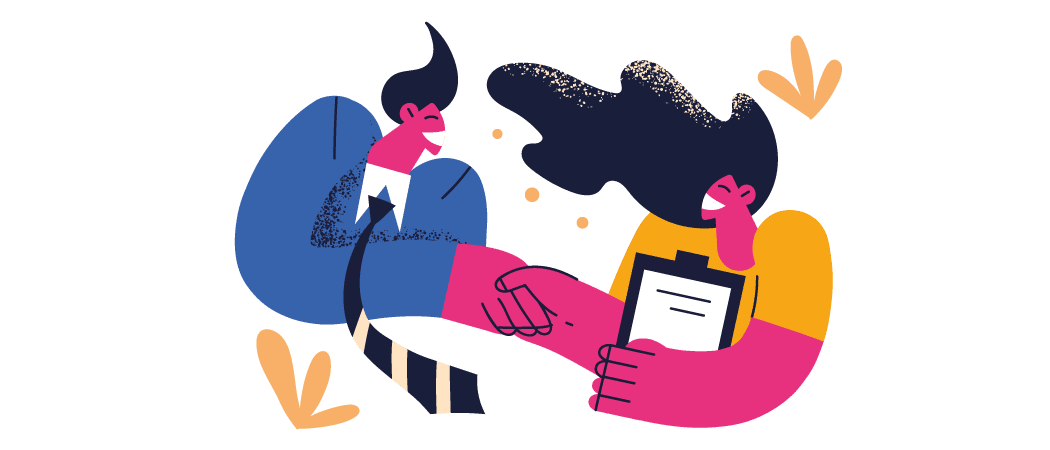This is a key project which will ensure the organization has the training resources necessary to fully develop its personnel and support the business.
TEXT Pablo Fuentes ILLUSTRATION Thinkstock
Training is an essential element for MAPFRE. This is clearly reflected by the company’s key figures for training in 2016: an investment of 18.4 million euros, 1.5 million hours and more than 270,000 training attendances, corresponding to over 99 percent of the workforce. This commitment on MAPFRE’s part to its professionals’ development is based on two major premises: it must always be aligned with the strategy and focused on the technical expertise of our businesses.
Following the global deployment of the Corporate University with 16 technical knowledge schools, five classrooms, one Innolab, three physical campuses (Madrid, Mexico City and São Paulo), as well as the eCampus with over 700 online training programs, in 2016 the Corporate Human Resources Area launched the Knowledge Paths initiative, a truly ambitious challenge.
Knowledge Paths responds to two relevant questions. Firstly, it ensures that all training plans, both corporate and local, include the know-how required for each function. Secondly, it identifies aspects within any of the company’s functions for which training resources have not yet been developed.
The project thus becomes a basic component of learning and knowledge management in MAPFRE, transforming knowledge into training resources through itineraries fully aligned with the strategy.
But, what path is knowledge in MAPFRE following?
The company’s Strategic Plan and functions map mark the starting point, always with the overriding mission, as we have pointed out, to link learning to the objectives of each function. From this point, the initiative is structured in four phases.
1. The first of these consists in identifying the knowledge that each employee must possess or acquire in order to perform their work in an optimal manner, according to the function they fulfill. This process is undertaken in conjunction with the corporate areas, countries and business units. For example, in the Actuarial Function, we have identified four areas of knowledge: Rating, Technical Provisions, Predictive Models and Insurer Risk. For each of them, specific areas of knowledge are identified, such as traditional and advanced rating techniques (for Rating), calculation of technical provisions or premium reserves (for Technical Provisions), calculation and creation of predictive models according to the predictive nature (for Predictive Models), or techniques for gaging the insurer’s risk (for Insurer Risk).
2. In a second phase, the objective is to transform these key areas of knowledge into training resources.
3. After identifying areas of knowledge by function and transforming them into training resources, in the third phase the inventory of resources is designed and training itineraries by job position are established.
4. In the fourth and final stage, the knowledge is deployed through the schools and classrooms of the MAPFRE Corporate University, thus reaching all our employees around the world.
ELVIRA ARANGO, assistant general manager of Training and Knowledge Management, underscores the benefits of the initiative. “Firstly, it helps to identify and manage knowledge in MAPFRE, and align it with our strategy, always with the focus on the business.
And it also helps each employee to choose their learning path. Moreover, self-development favors the training of professionals who are more flexible and more versatile.”>Knowledge Paths also introduces the concept of self-development, a model with which MAPFRE is making progress and which allows employees to choose part of their learning process from a broad range of training resources, related to both their own functional sphere and other functions. Self-development favors the functional and geographical mobility of employees and is indeed a most important step for training management in MAPFRE.
It is important to note that Knowledge Paths places the focus on the technical training side of our businesses, the objective being to see to it that 70 percent of the training in MAPFRE in 2017 is oriented to the technical, sales and operations spheres. In other words, the idea is to boost learning in these functions in every country and business unit through classroom and online courses, among other resources.
Elvira Arango, assistant general manager of Training, underscores the benefits of the initiative. “Firstly, it helps to identify and manage knowledge in MAPFRE, and align it with the business. And it also helps each employee to choose their learning path. Moreover, self-development favors the training of professionals who are more flexible and more versatile.”





